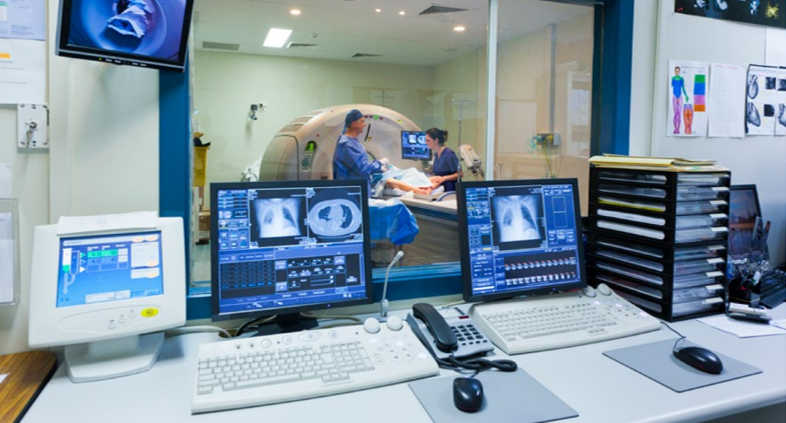Dr Martina McAteer, NCITA Engagement Coordinator, and Professor Geoff Higgins, Chair of NCITA Engagement Group have recently published a science communication article ‘Advancing imaging biomarker development and translation through the National Cancer Imaging Translational Accelerator (NCITA)’ (DOI: 10.32907/RO-128-2267290092) in Research Outreach publication (Issue 128, February 2022).
The article summarises NCITA’s clinical imaging research infrastructure which offers clinical researchers access to advanced imaging technologies in nuclear medicine and magnetic resonance imaging (MRI) as well as specialised expertise including a dedicated imaging CTU, QA/QC unit and data repository services.
Through expanding its collaborations with clinical researchers in academic and industry, NCITA aims to develop and sustain its infrastructure capacity and support for multicentre clinical imaging biomarker studies. Clinical researchers, both UK-based and international, are encouraged to get in touch with NCITA to discuss the infrastructure and support on offer for their research proposal by emailing ncita.general@ucl.ac.uk or visiting the NCITA website and using the contact form. While cancer imaging studies are a key focus, clinical research studies involving AI algorithm development, training and validation in other disease areas will also be considered for adoption.
Key to success is NCITA’s close alliance between its research aims and the health service needs. Through engagement and close communication with imaging stakeholders from the NHS, regulatory bodies, charities, patient and public involvement and the Cancer Research UK Commercial Partnerships team, NCITA aims to advance the translation of imaging biomarkers into clinical practice to improve healthcare outcomes for patients.
We are grateful to Cancer Research UK for funding the publication of the Research Outreach article. Click here to view a pdf version of the article.
For any queries please contact:
Dr Martina McAteer, NCITA Project Manager and Engagement Coordinator


